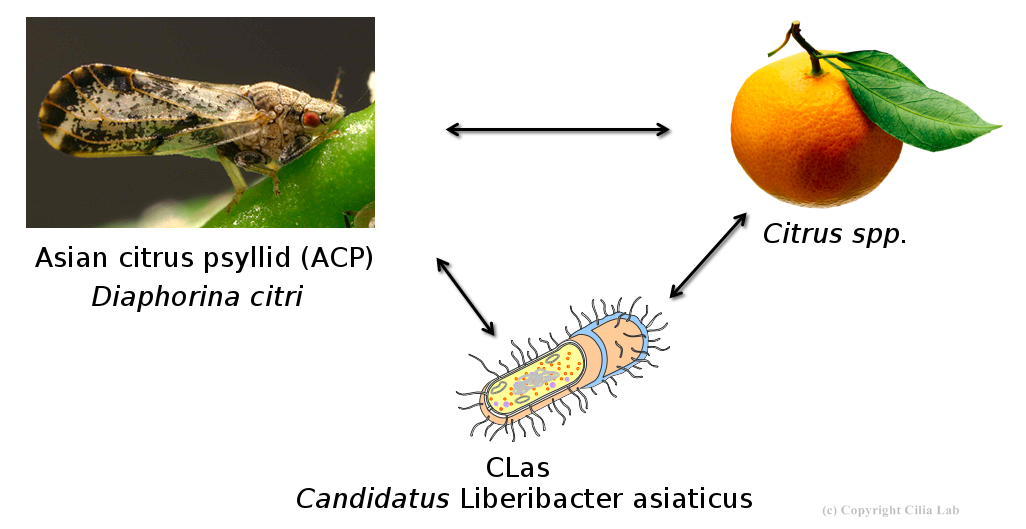The AgriVectors platform is an open access and comprehensive resource for growers, researchers and industry working on plant pathogens and pathosystems spread by arthropod vectors. The portal connects established public repositories with pathosystem-specific data repositories. We are beginning with resources related to citrus psyllid, potato psyllid and are expanding to other important hemipteran vectors such as whiteflies, leafhoppers and planthoppers in addition to thysanopteran vectors, like thrips, and others.









